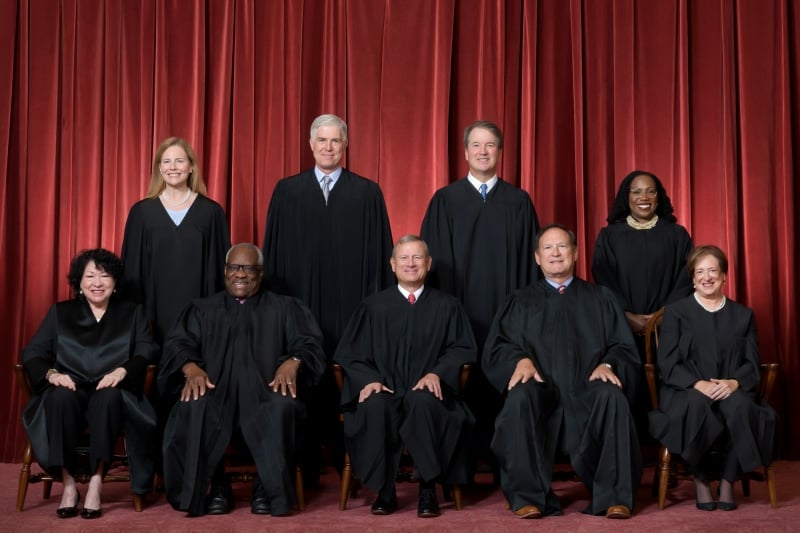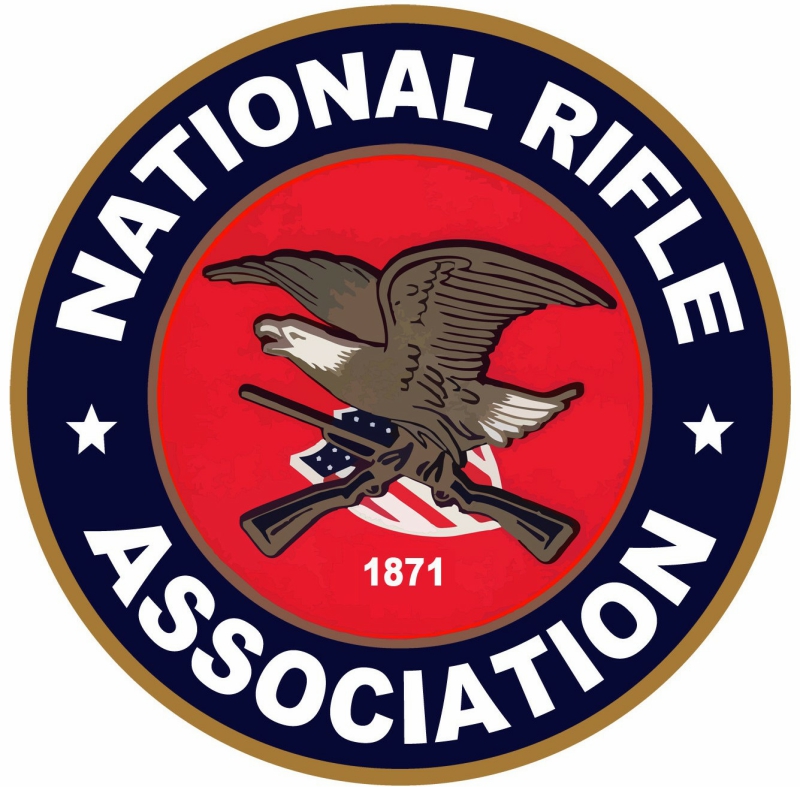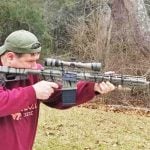The United States Supreme Court has unanimously ruled that a former New York state official violated the National Rifle Association’s (NRA) right to free speech under the First Amendment. The case stems from former New York State Department of Financial Services (DFS) Superintendent Maria Vullo’s pressuring three major insurance providers to stop doing business with the NRA. This is an important win for the NRA and other advocacy groups with whom governments and their officials may disagree.

The Background
You may recall that the NRA used to offer its “Carry Guard” insurance to members. They may still offer it, I don’t know. I couldn’t find it on the NRA website. Carry Guard was like other concealed carry insurance programs, offering coverage for legal fees resulting from a lawful self-defense incident.
The NRA did not have a New York license to market Carry Guard, a fact to which Vullo was tipped by an unnamed gun control group. Vullo, in her official capacity, contacted insurance underwriters Lloyd’s of London and Chubb Limited, informing them of the violation, along with the Lockton Companies, who administered the policies. Lockton and Chubb suspended Carry Guard.
But Vullo wasn’t done. Operating under the allegation that Carry Guard insured “intentional criminal acts,” the DFS Superintendent leveraged the public backlash from the February 14, 2018, Parkland, Florida shooting to pressure Lockton, Lloyd’s, and Chubb to sever all ties to the NRA. A February 27, 2018, meeting between Vullo and senior Lloyd’s executives saw Vullo express her and then-New York Governor Andrew Cuomo’s “views on gun control and their desire to leverage their powers to combat the availability of firearms, including specifically by weakening the NRA.”
Vullo also “discussed an array of technical, regulatory infractions plaguing the affinity-insurance marketplace” in New York. Vullo told the executives “’that DFS was less interested in pursuing these infractions’ unrelated to any NRA business ‘so long as Lloyd’s ceased providing insurance to gun groups, especially the NRA.’”
The deal was that Lloyd’s “would instruct its syndicates to cease underwriting firearm-related policies and would scale back its NRA-related business. In exchange, DFS would focus its forthcoming affinity-insurance enforcement action solely on those syndicates which served the NRA and ignore other syndicates writing similar policies.”
So, basically, Vullo, representing the State of New York, bribed Lloyd’s into cutting ties with the NRA to weaken the organization. Of course, that bribe was double-edged, carrying an implicit threat of what would happen should those companies not play ball.

“Social Responsibility”
But that’s not all. On April 19, 2018, Vullo issued two identical guidance letters on DFS letterhead. The letters were entitled Guidance on Risk Management Relating to the NRA and Similar Gun Promotion Organizations. Vullo sent one letter to New York-licensed insurance companies and the other to banks and financial institutions.
Supreme Court Justice Sonia Sotomayor wrote “In the letters, Vullo pointed to the ‘social backlash’ against the NRA and other groups ‘that promote guns that lead to senseless violence’ following ‘several recent horrific shootings, including in Parkland, Florida.’ Vullo then cited recent instances of businesses severing their ties with the NRA as examples of companies ‘fulfilling their corporate social responsibility.’”
The letters also urged the recipients to “continue evaluating and managing their risks, including reputational risks, that may arise from their dealings with the NRA or similar gun promotion organizations; review any relationships they have with the NRA or similar gun promotion organizations; and take prompt actions to manag[e] these risks and promote public health and safety.”
Vullo and Cuomo issued a joint press release the same day, with Vullo “urg[ing] all insurance companies and banks doing business in New York” to join those “that have already discontinued their arrangements with the NRA.” The press release said that other companies should emulate Chubb’s decision to stop underwriting Carry Guard. Cuomo tweeted a day later that “The NRA is an extremist organization. I urge companies in New York State to revisit any ties they have to the NRA and consider their reputations, and responsibility to the public.”
Lockton, Lloyd’s, and Chubb agreed, cutting off the NRA and paying millions in fines to the state. So, Vullo not only got her way, but she also made sure New York got paid in the process.
The NRA’s Lawsuit
The NRA sued Vullo on First Amendment grounds. The American Civil Liberties Union (ACLU) uncharacteristically litigated the suit on the NRA’s behalf. Vullo moved to dismiss the NRA’s First Amendment claims, but the Federal District Court denied the motion, writing that “the combination of [Vullo’s and Cuomo’s] actions . . . could be interpreted as a veiled threat to regulated industries to disassociate with the NRA or risk DFS enforcement action.” The court found that threat to be a First Amendment violation.
The very liberal Second Circuit Court of Appeals reversed the ruling, saying that “Vullo’s alleged actions constituted permissible government speech and legitimate law enforcement, and not unconstitutional coercion. The Second Circuit determined that the Guidance Letters and accompanying press release were not unconstitutionally coercive because they ‘were written in an even-handed, non-threatening tone and employed words intended to persuade rather than intimidate.’”
The Second Circuit ruled that the District Court case, which is still ongoing, could not pursue First Amendment allegations against Vullo. The NRA and ACLU appealed that directive to the Supreme Court.

The Unanimous Supreme Court Decision
Justice Sonia Sotomayor, writing for the Court, stated that “Vullo was free to criticize the NRA and pursue the conceded violations of New York insurance law. She could not wield her power, however, to threaten enforcement actions against DFS-regulated entities in order to punish or suppress the NRA’s gun-promotion advocacy.”
In other words, Vullo can freely express her opinions and even those of the government. However, she cannot use the government’s power to coerce non-government entities to adhere to the government’s position. That coercion negatively affected the NRA’s advocacy efforts, making this a First Amendment violation.
Justice Sotomayor rightly states that “Nothing in this case gives advocacy groups like the NRA a ‘right to absolute immunity from [government] investigation,’ or a ‘right to disregard [state or federal] laws.’ Similarly, nothing here prevents government officials from forcefully condemning views with which they disagree. For those permissible actions, the Constitution ‘relies first and foremost on the ballot box, not on rules against viewpoint discrimination, to check the government when it speaks.’ Yet where, as here, a government official makes coercive threats in a private meeting behind closed doors, the ‘ballot box’ is an especially poor check on that official’s authority. Ultimately, the critical takeaway is that the First Amendment prohibits government officials from wielding their power selectively to punish or suppress speech, directly or (as alleged here) through private intermediaries.”
Justices Neil Gorsuch and Ketanji Brown Jackson wrote concurring opinions supporting the decision.
ACLU national legal director David Cole argued the case before the high court. His response to the ruling was straightforward: “Today’s decision confirms that government officials have no business using their regulatory authority to blacklist disfavored political groups. The New York state officials involved here, former Gov. Andrew Cuomo and his chief financial regulator, Maria Vullo, were clear that they sought to punish the NRA because they disagreed with its gun rights advocacy. The Supreme Court has now made crystal clear that this action is unconstitutional.”

What Now?
The First Amendment violation was the only aspect of the NRA’s lawsuit against Maria Vullo. The Supreme Court remanded the case back to the Federal District Court for further adjudication. That case will move forward on the premise that Vullo and the DFS did indeed illegally coerce Lockton, Lloyd’s, and Chubb to the NRA’s detriment. That should guide how the rest of the case will go.
This is an important step toward dealing with government agencies that overstep their bounds. The decision only affects the New York DFS, but it came from the Supreme Court, thus establishing a precedent for similar incidents in the future, whether the agency is state or federal.


